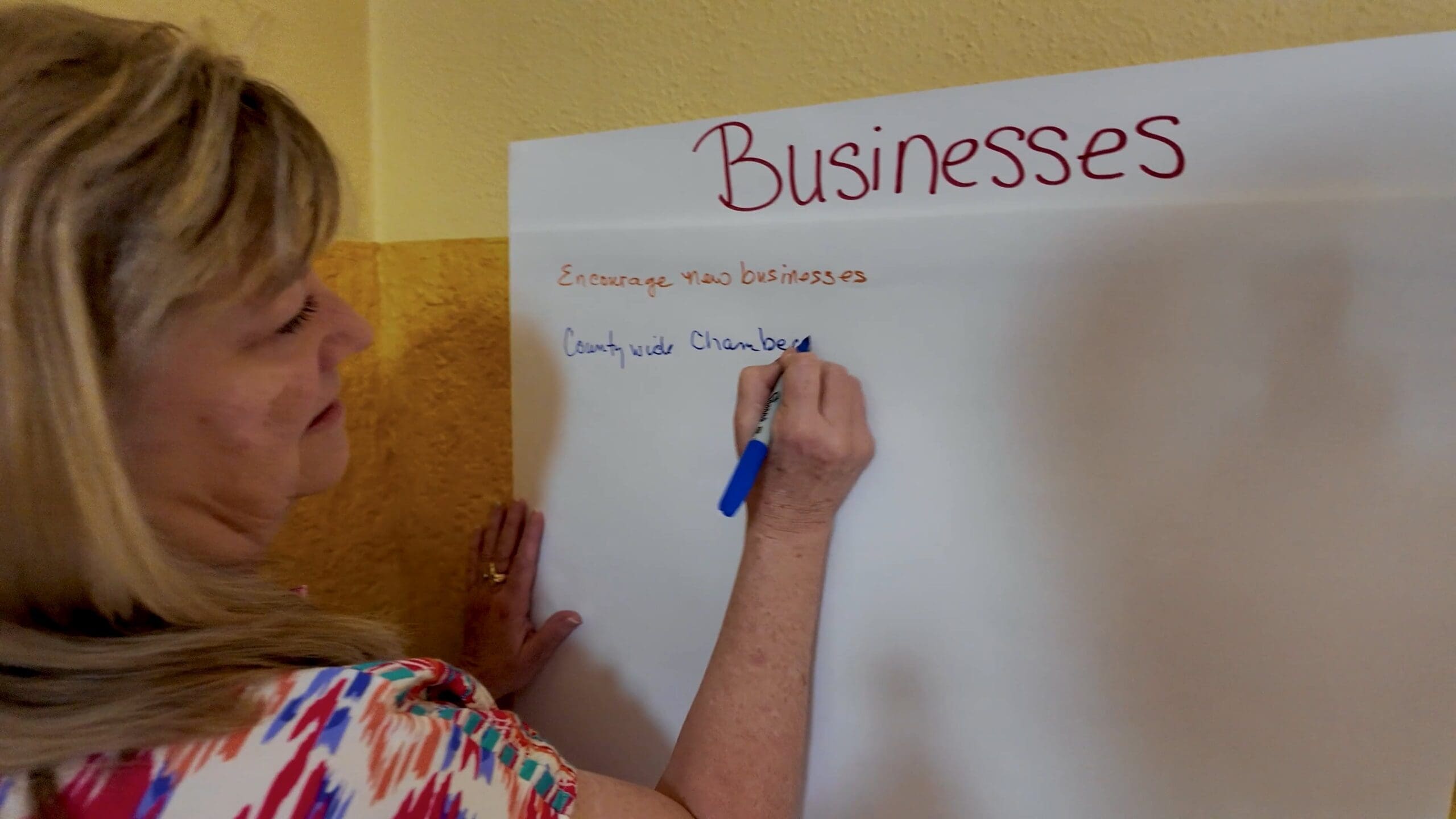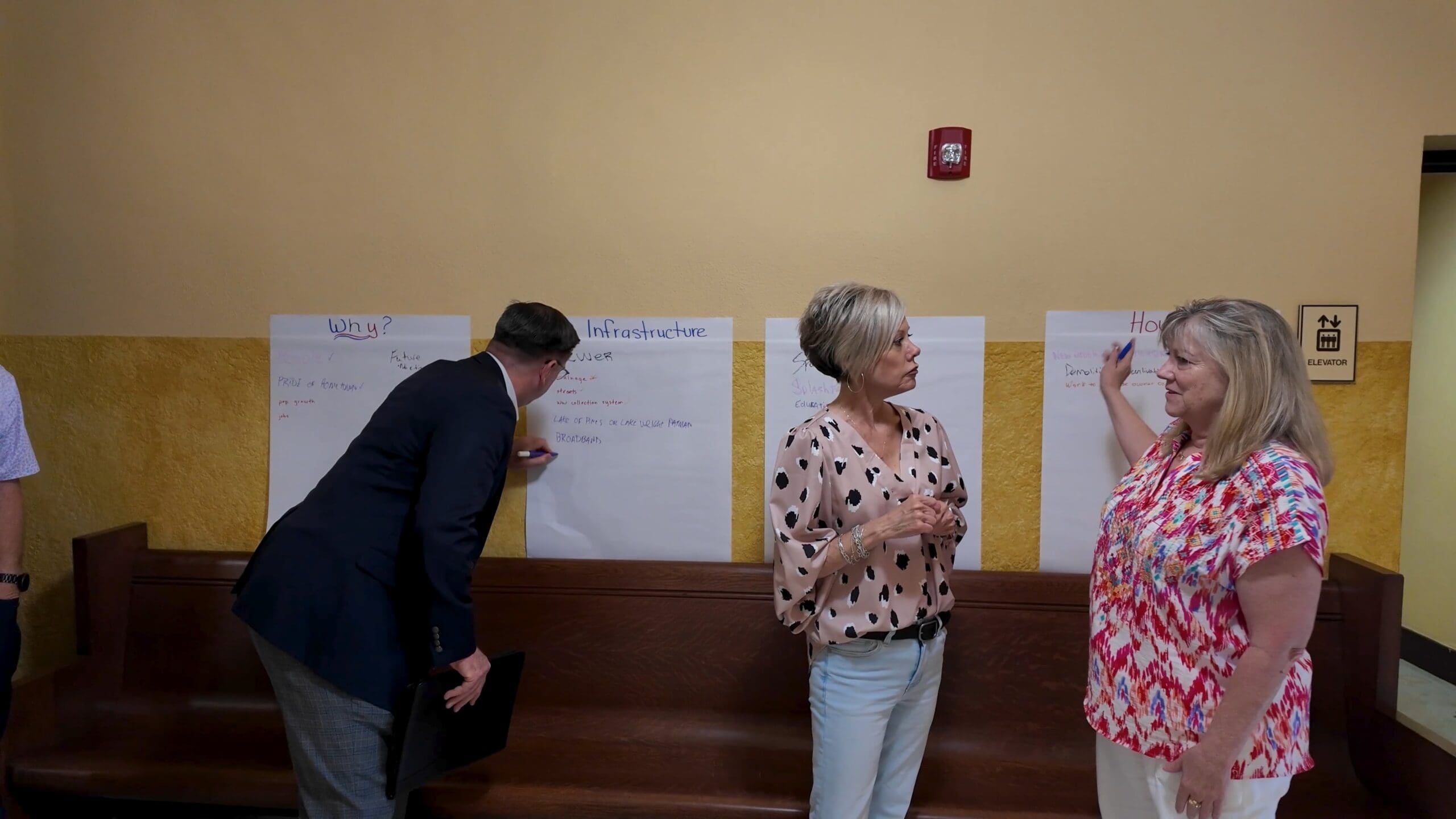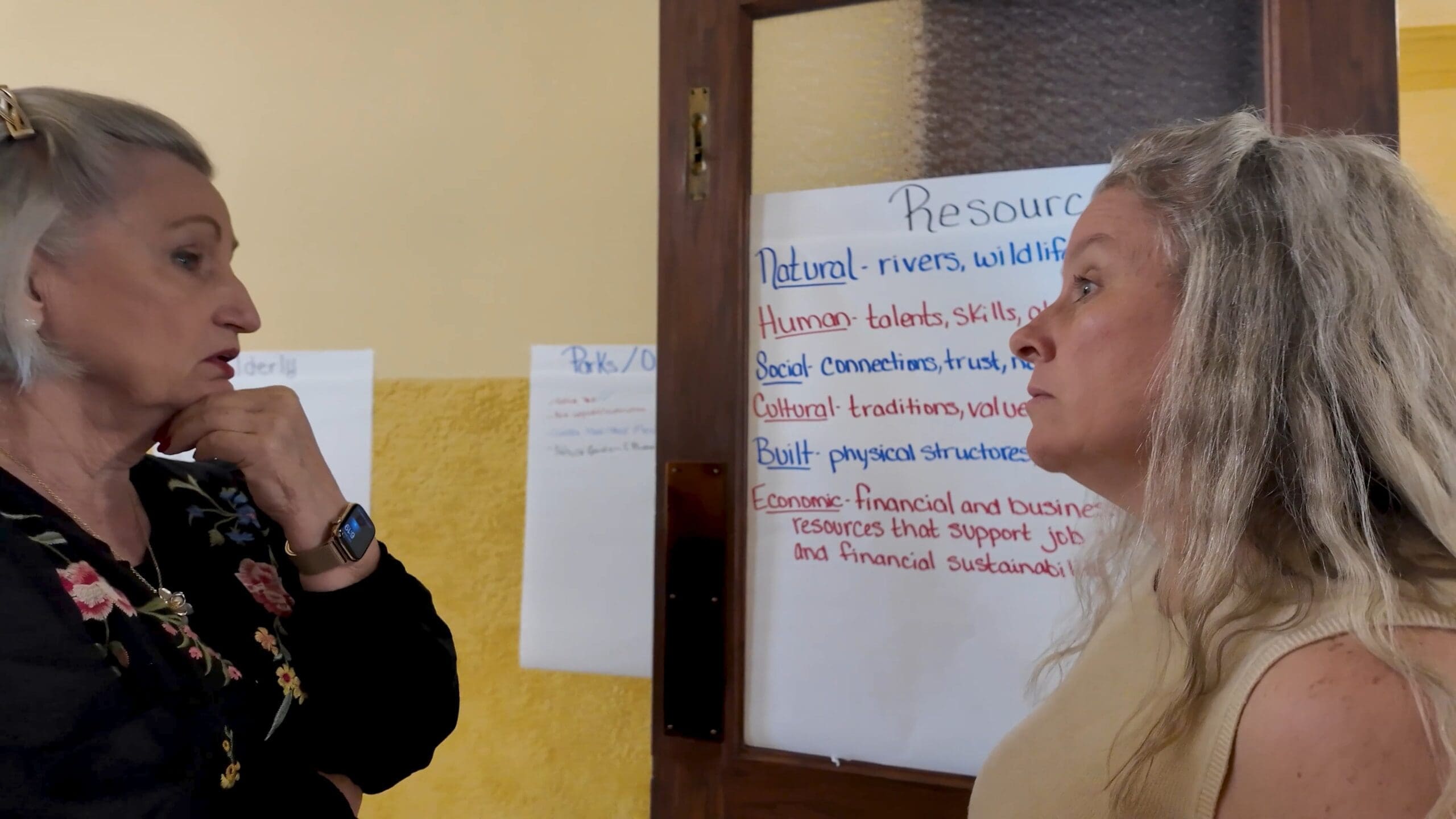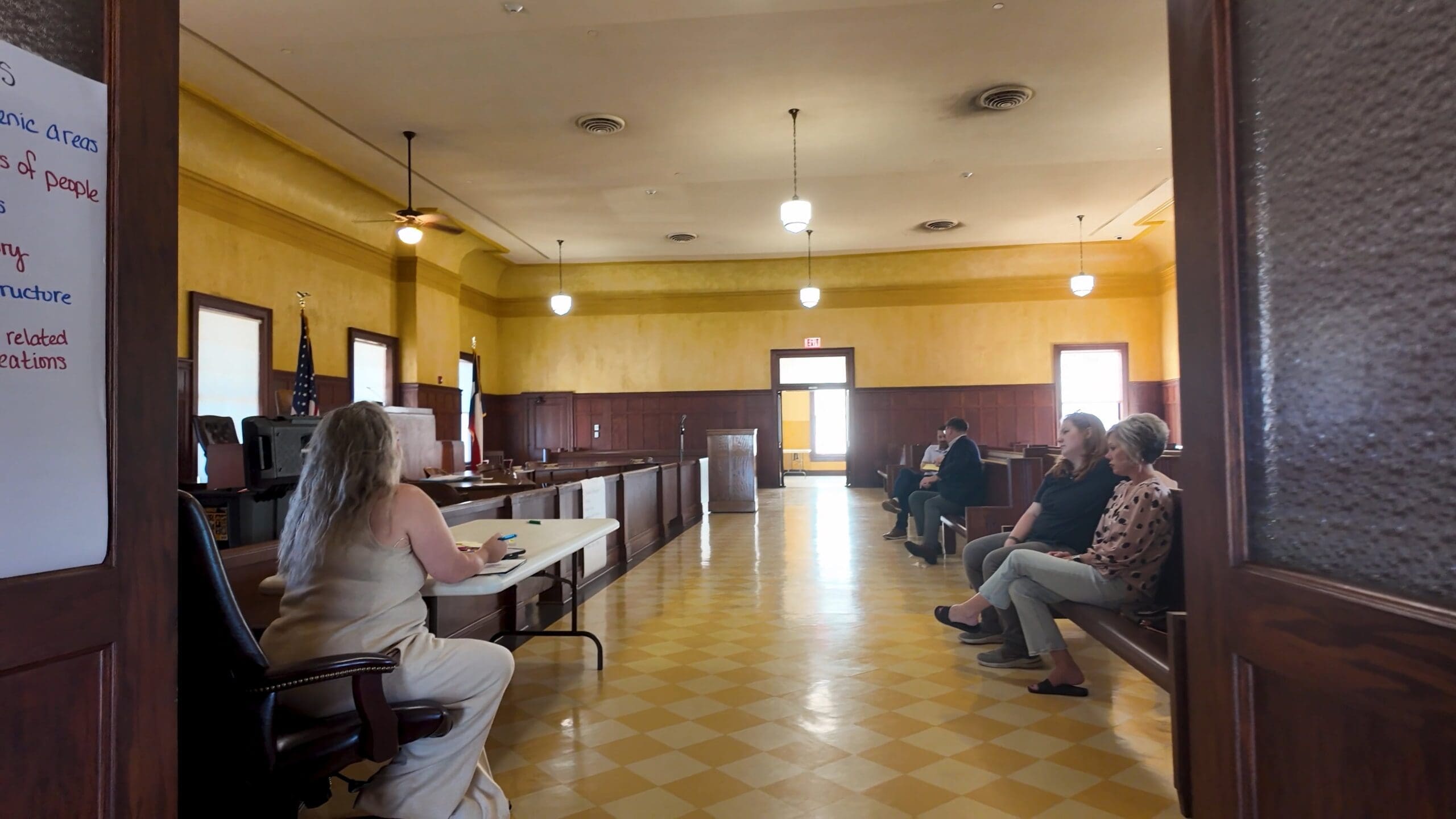In the pine-covered hills of Northeast Texas, just off Highway 59, lies Linden — a small town with deep roots and a proud past. Once the beating heart of Cass County, Linden boasted thriving shops, historic architecture, and a music legacy that gave rise to legends like Don Henley of the Eagles and blues icon T-Bone Walker. But like many rural towns, Linden has struggled to keep pace with shifting economies and dwindling populations.
Joanna Duncan remembers the town at its peak.
“Linden was booming until around the 1990s,” she said. “Every building downtown had a business. But as oil and timber declined, the economy followed. Many of those buildings are still vacant today.”
The effects have been long-lasting. Key institutions — including the hospital — have closed, downtown storefronts are dark, and disinvestment has taken a toll.
A Town of Deep Roots
Despite the decline, Linden remains home to people with strong ties and a commitment to revival.
Anna Barber, owner of My Cousin’s Place, moved back 15 years ago and bought a crumbling downtown building.
“I just wanted to save a little part of Linden,” she said. “I kept meeting people who turned out to be my cousins, so I named the shop My Cousin’s Place.”
Chef Lee Warren, who owns Fire and Knives Bar and Grill, returned after three decades away.
“I was about to open a place in Fort Worth when this came up. I decided to come home and do something for Linden,” he said. He remembers when the courthouse square was so packed you had to circle several times to park. “Now it’s a ghost town. But you can’t just blame the past — you need a plan for the future.”
Challenges Facing Linden
Like many rural communities, Linden faces an uphill battle: an aging population, declining tax base, crumbling infrastructure, and limited access to healthcare.
“Only 18% of our population has a post-secondary credential, and just 13% hold a bachelor’s degree,” said Cass County Judge Travis Ransom. “Without a skilled workforce, it’s hard to attract new industry.”
City Administrator Stephen Barnes added, “We’re dealing with aging infrastructure, housing shortages, workforce gaps, and a downtown in need of revitalization.”
One persistent issue is absentee ownership of key properties, which has stalled redevelopment.
“Many buildings downtown are owned by out-of-town landlords who aren’t engaged,” Ransom said. “We need a plan — and the legal tools — to deal with blight and move forward.”
Still, hope remains. “There’s pride here,” said Barnes. “People want to see the square come alive again.”
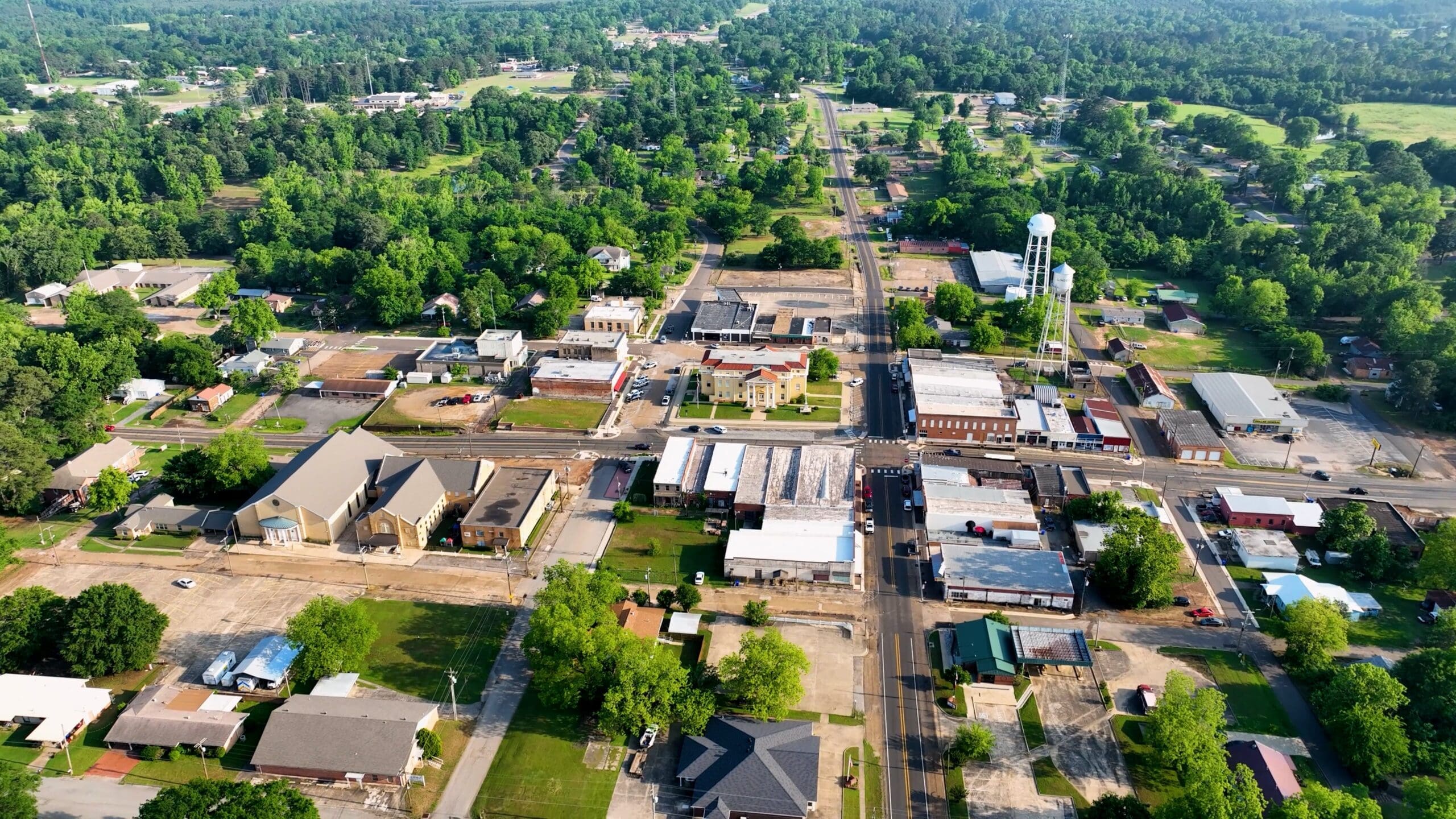
Communities Unlimited Steps In
Linden connected with Communities Unlimited (CU) in 2022 through its Community Infrastructure Team, following USDA identification of urgent need. A site visit revealed deteriorated water and wastewater systems — some dating to the 1930s — along with road damage, and outdated emergency services facilities.
CU’s Tom Fulton and Chad Brown began attending council meetings and building trust. Over two years, CU helped the city secure nearly $6 million in funding through technical assistance, financial planning, utility rate studies, and grant navigation. Projects included upgrades to water and sewer systems, road repairs, and equipment for police and fire services.
CU’s infrastructure work officially concluded in August 2024. But the relationship didn’t end there.
In early 2025, Judge Ransom re-engaged CU as new momentum built. CU’s Community Sustainability Team — including DeAnna O’Malley and Dawn Parker, and Chris Ranniger from the Lending Team — visited the city to discuss new priorities, including downtown revitalization and converting a county-owned building into a gym.
Thanks to a USDA Rural Community Development Initiative (RCDI) grant, CU deepened its work in 2025, focusing on housing, leadership development, and planning.
“We’re just getting started,” said O’Malley. “But the energy is real.”
City Administrator Barnes, new to the role in late 2024, quickly saw CU’s value.
In a February meeting, Barnes identified substandard housing as a top concern for the city. O’Malley “strategically blended” CU’s resources and introduced him to the broader capabilities of the Housing and GIS teams, and Barnes expressed strong interest in using GIS mapping to catalog blighted properties throughout Linden. He also highlighted the need for mapping the city’s water lines and manholes to guide infrastructure upgrades.
“In just a few months, we’ve already secured GIS mapping for our water system and launched a roof replacement program for residents in need,” he said. “They’re walking alongside us — not just telling us what to do.”
Housing and Community Engagement
CU’s Community Housing Technician Kamilah Tatum began working with residents on the Fortified Roof program and launched a citywide housing assessment.
Initial findings show a dire need. The city’s housing stock is old and often unsafe. Demand for Housing Choice Vouchers far exceeds supply, and the only subsidized complex in town has just 24 units. In May, evaluations were completed for 11 homeowners who applied for help with roof repairs. CU will notify residents of next steps once assessments are complete.
To gather broader input, O’Malley hosted a community needs assessment on May 1 at the historic Cass County Courthouse. Residents and local leadership shared hopes and concerns while preparing Linden for the future.
“These conversations get the ball rolling,” said O’Malley. “When communities are ready and willing, incredible things can happen.”
Barber agreed. “I’ve wanted to see us build a real plan — for infrastructure, for business, for marketing. We need partners who can help us carry it out.”
Looking Ahead
For Judge Ransom, revitalizing downtown is the first step.
“I want to see a walkable square, filled with specialty retail and people again,” he said.
But he emphasized the deeper need for education. “Without education, we can’t build a skilled workforce or attract jobs. Hard work matters — but education opens doors.”
The challenge is already visible: declining enrollment forced Linden to close its junior high. The town now operates only an elementary and a high school. Ransom wants to reverse that trend — and sees education as key to long-term prosperity.
“I’d like to see unemployment drop below 5%, school enrollment rise, and a 5% year-over-year growth in sales tax revenue.”
Barnes shares that vision. “We’re planning not just for the next five years, but the next 50,” he said. “That means modern infrastructure, new businesses, and a thriving downtown.”
Projects already underway include a large street rehabilitation, a major water main replacement, and plans to overhaul the wastewater system.
Barber dreams of a museum, expanded lodging, and revitalized venues like the Music City Texas Theater.
“We need more variety and more opportunity,” Duncan added. “I believe we could be a fun community again.”
Warren envisions a full entertainment district with music and attractions.
“We’ve got the courthouse. We’ve got my restaurant. Now we need to build around that,” he said. “Jefferson, Texas, was in bad shape once too — but people came in with a vision. We can do that here.”
A Hidden Asset: Lithium
Beyond downtown revitalization, another opportunity looms beneath Linden’s soil. Cass County sits atop the Smackover Formation — a brine deposit rich in lithium, crucial for electric vehicle batteries and national defense.
Judge Ransom says concentrations here are higher than in areas already seeing development, like El Dorado and Lewisville, Arkansas. With the right preparation, he believes Linden could become a key player in this emerging market.
O’Malley, who has helped Lewisville prepare for lithium investment, is excited about Linden’s prospects.
“Standard Lithium is already talking about northeast Texas,” she said. “Those relationships could bring real opportunity here.”
A Community Ready to Rise
The people of Linden believe in their town. They know it won’t be easy, but they’re ready.
“It’s home,” said Barber. “I just want to see it prosper.”
Warren put it simply.
“Someone told me, ‘We’ll never be what we were.’ I told them — we’re going to be better.”
— Lee Warren, Owner of Fire and Knives Bar and Grill


